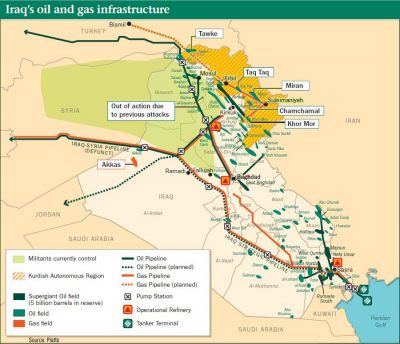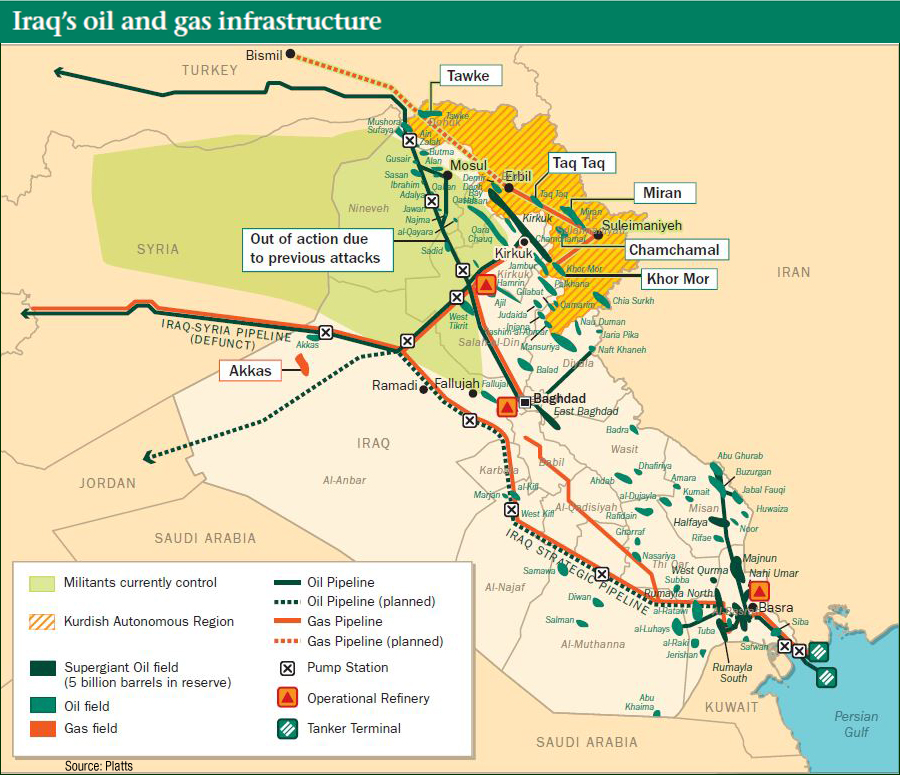Will the Kirkuk Campaign Lead to Regime Change in Kurdistan?
The Iraqi federal government commenced a military intervention in the Kurdish-occupied oil-rich city of Kirkuk.

This area has long been disputed between the Iraqi central authorities and the Kurdish Regional Government of Northern Iraq, and Article 140 of the post-2003 US-imposed “constitution” decreed that a referendum was supposed to have been held here before 2008. Such a vote never took place due to the country’s dire security situation and misplaced priorities at the time, but the Kurdish-claimed city take part in a different referendum last month when they voted for independence from Iraq. The Kurdish military forces, or Peshmerga, occupied Kirkuk in 2014 after they drove Daesh out of the city, which they had previously conquered after expelling the Iraqi Army shortly beforehand. Baghdad declared the vote illegal, while Erbil said that it gave the Kurds the right to negotiate independence from Iraq, stressing that they wanted to achieve their ends as peacefully as possible.
According to the Iraqi Constitution, the Kurds’ moves are illegal, hence why Prime Minister Abadi asked them several times over the past month to reverse their pro-independence path, allow the return of federal forces to their region, and surrender Kirkuk back to the central government. The Kurds refused to do any of this, which is why the Iraqi Army was ordered to reclaim the disputed city in what was a largely non-violent operation, albeit one which the Kurds described as a “declaration of war”. Right now the situation is very tense, since the federal forces are reluctant to sweep into the formal territory of the Kurdish Regional Government out of fear that this might provoke an all-out civil war, though they nevertheless need to reestablish their presence there if they want to have any hope of stopping the Kurds’ secession.
It’s in this context that it’s relevant to mention that Iraq has most likely coordinated its response with its Turkish and Iranian neighbors, both of whom are confronting their own armed Kurdish separatists as well. None of these three state parties want to create the false impression that they’re waging a “War on the Kurds”, nor do they have any intention of launching a trilateral Arab-Turkish-Iranian occupation of Kurdish territory in Northern Iraq because of how unsustainable this would be from a military perspective. Instead, what they’re seeking to do as a worst-case scenario is carry out a “regime change” in the region by ousting the separatists and replacing them with Baghdad-friendly “federalists” until a new round of elections can be held by the Kurdish Regional Government, one which the pro-independence forces would be barred from participating in unlike the upcoming ones scheduled for 1 November.
It’s very possible that the end result of this prospective effort could see the Barzani family’s political monopoly over Iraqi Kurdistan broken once and for all, which could herald in a completely new era for the region and change many of the international partnerships that were brokered by this powerful clan.
Andrew Korybko is an American Moscow-based political analyst specializing in the relationship between the US strategy in Afro-Eurasia, China’s One Belt One global vision of New Silk Road connectivity, and Hybrid Warfare.
Featured image is from the author.


